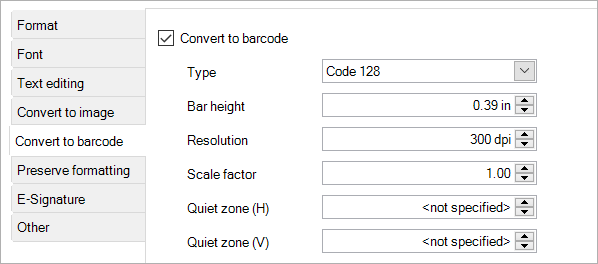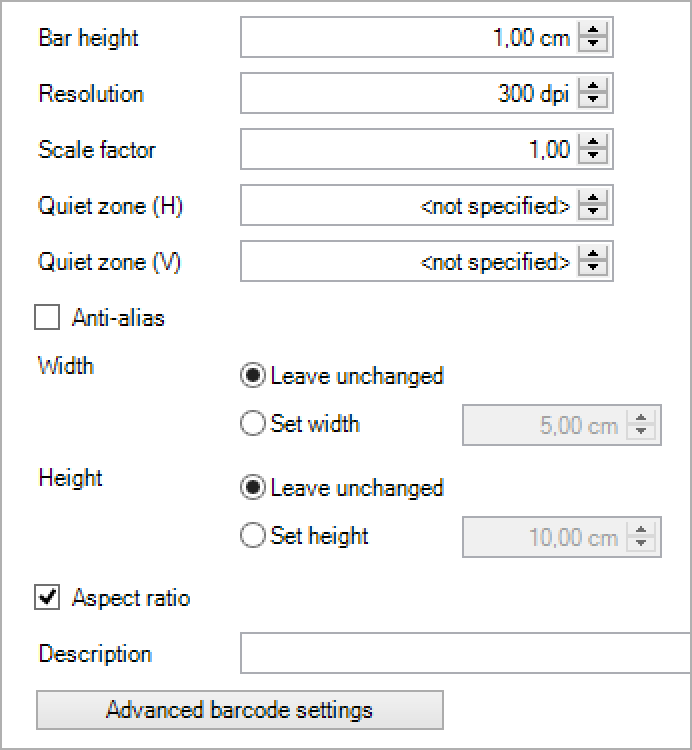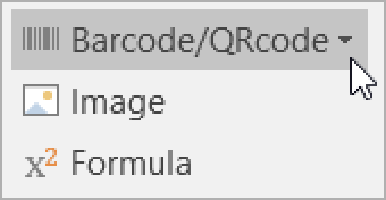Convert to Barcode
The Convert to bar code tab is used to convert a mapping into a bar code.
To insert a bar code, you have to convert a mapping's value to a bar code. This is done from within the Convert to bar code tab in a mapping's formatting tab.

Make sure to check the box, as this unlocks the controls you need to configure the conversion.
In addition to going to an existing mapping and selecting Convert to bar code, you can select anywhere in the document and then select Bar code in the ribbon. This will create an empty mapping with the Convert to barcode option enabled:
Options
The tab offers a few options. First of all, you can choose the desired bar code type in the dropdown list:
These are the types you can choose from:
- Codabar
- Code128
- Code39
- DataMatrix
- Ean128
- Ean13
- Ean8
- Interleaved2of5
- ITF14
- PDF417
- Postnet
- QRCode
- RoyalMailCBC
- UPCA
- UPCE
- USPSIntelligentMail
While every bar code type has its own settings, these settings are the same for all barcodes:

Select Advanced bar code settings to change barcode-specific settings.
|
Setting |
Description |
|---|---|
|
Bar height |
The height of the barcode's bar. |
|
Resolution |
|
|
Scale factor |
Defines how much the bar code should be scaled. A factor of 2 scales the bar code by 200%. |
|
Quiet zone horizontal |
Defines how much white space is added to the left and right of the bar code. |
|
Quiet zone vertical |
Defines how much white space is added to the top and bottom of the bar code. |
|
Anti-alias |
Defines whether to anti-alias the bar code. |
|
Aspect ratio |
Determines whether to maintain the aspect ratio (width/height) when scaling the image. For most barcodes, you will likely want to turn this setting on. |
|
Height |
The height of the bar code (in mm). |
|
Width |
The width of the bar code (in mm). |
|
Description |
The textual description of the bar code. |


